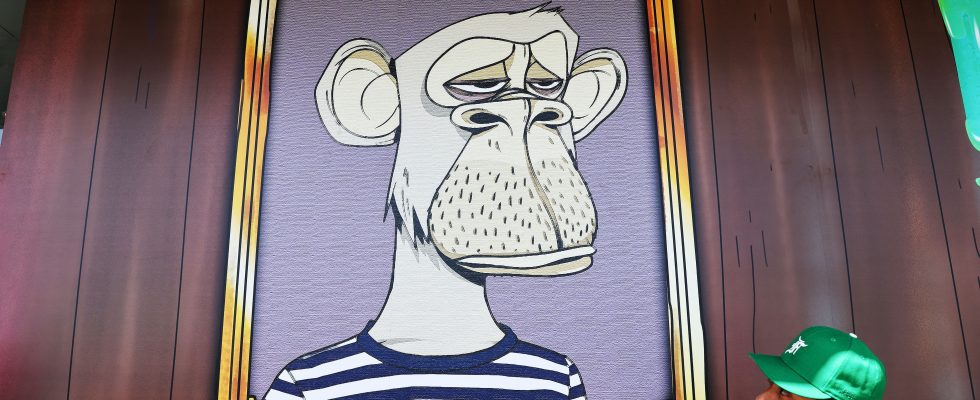What is an NFT (non-fungible token), this unique and authenticatable digital object, used for? For the beginner, the first research on the subject can be confusing. It is the future of art, some say. An enhanced loyalty card for others. The prospect of guaranteed gains say the most optimistic – or charlatans. One of the great promises of NFTs is, in any case, about to be buried: that of automating the payment of royalties to creators each time their work changes hands. Artists had taken to dreaming of being better paid and seeing their notoriety increased. Agreeing to sell your first works at low prices, to make yourself known at the start, is indeed easier if you have the assurance of receiving commissions on future sales.
The sector, however, returns to this beautiful oath. By making the payment of royalties optional, the new Blur exchange platform has adopted a very aggressive pricing strategy that has allowed it to gain a prominent place in the market. A turn that comes just when it plummets severely, making the competition fiercer than ever. In 2022, the amount of quarterly sales of NFT thus fell from 12.6 billion dollars to 1.9 billion. according to Dapp Radar. And if an upturn was observed at the beginning of 2023, it was short-lived. In July, the amount of monthly sales almost halved compared to January.
A threat to Yuga Labs, the annuitant of the sector
“It’s the end of a period of great excitement, the market is changing its face: speculative NFTs decline while ‘practical’ NFTs develop. Tomorrow, they will be used in much different and much more varied situations. By example, to transport our contacts and followers on social networks from one platform to another”, explains Pierre-Nicolas Hurstel, CEO of Arianee, a French company that allows brands (Le Printemps, Richemont, Casino, etc.) to use NFTs for real-world use cases and customer engagement. Meanwhile, for major NFT exchanges, the drop in sales poses a real problem. This is why the giant OpenSea, like its rival Blur, has just announced that it will no longer pay royalties systematically.
A decision booed by part of the planet NFT. As shown by outraged reactions on X (ex-Twitter) in comments of the OpenSea publication announcing this policy change. “These royalties, that is to say this numerical return provided by a smart contract (Editor’s note: a kind of computer-coded contract), are an important economic component for artists using NFTs”, argues Matthieu Quiniou, lawyer at Legal Brain. The CEO of Arianee also sees real utility in this commission system, “in certain specific cases, when they allow an alignment of the interests of the buyer, the seller, the organizer and the producer. For example, to make limited production models economically viable, especially in luxury, by organizing the second life of products.”
This brutal change of policy will have at least one virtue: that of frightening the most casual actors. When the NFT market was booming, royalties indeed constituted an extremely comfortable income for companies in the wind. So much so that they no longer needed to develop a solid offer. Thanks to speculation in hip tokens like the famous Bored Ape Yacht Club monkeys, companies like Yuga Labs could rake in money by sitting idle. Every time their creations changed hands, they got their piece of the pie. No wonder then that Yuga Labs is up in arms against OpenSea’s decision. To mark its opposition, the company even announced that from February 2024, its new NFTs would no longer be available on the platform. It is now going out of its way to develop a playful metaverse and has recruited video game big names to do so. Its new CEO, Daniel Alegre, who arrived last December, is the former president and COO of Activision Blizzard. Because Yuga Labs has understood it well: recreation is over. Proposing unique images, hoping that they will resell frequently for exorbitant prices, will no longer suffice in the future.
